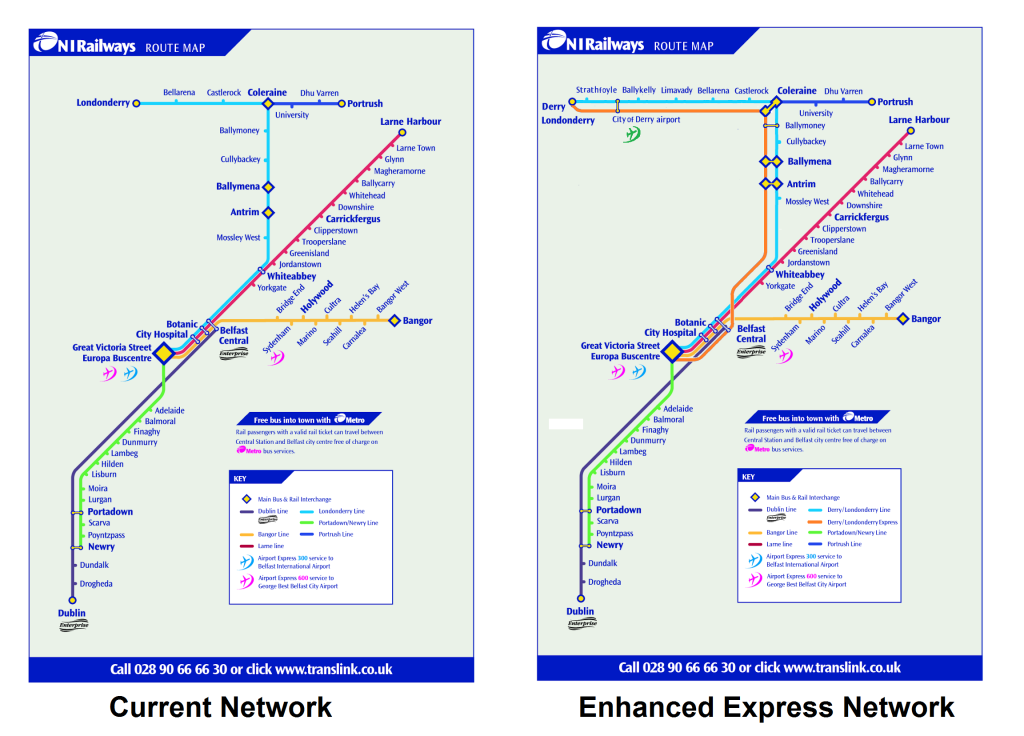The only way the Derry line can genuinely serve as both a commuter route for Belfast and an inter-city service for NI/the island simultaneously would be by introducing additional fast/express services. That would allow Derry-Belfast journey time to be slashed dramatically (ideally to 80/90mins max), and make the service much more competitive versus road for travel between the two cities. To enable the line to continue with its commuter role for Belfast, however, these fast/express services would have to be time-tabled alongside slower ‘all stop’ services. This is not possible on a predominantly single track line.
It is therefore essential that the Derry-Belfast line be dualled to enable additional express services to be added. These would ideally operate once an hour in-between the current ‘all-stop’ services – increasing overall frequency on the line to every 30mins, alternating between fast and slow.

Dualling would also enable the introduction of a third role for the Derry-Belfast line = As a commuter rail network for Derry, via the introduction of additional stops. This would increase both passenger numbers and revenue on the line, whilst also encouraging and enabling modal shift. Double-tracking the line would be essential anyway as part of the proposed new ‘high-speed’ Derry-Belfast-Dublin-Cork rail line. However – that project is still in its infancy and many year away, if ever delivered at all. There is a requirement to dual the Derry line now anyway to address its structural limitations – regardless of whether a high-speed service transpires.
An interim measure to help ‘migrate’ the line towards dual-track status would be to install additional passing loops at strategic points along it. This would enable both fast & slow services to operate simultaneously.
The Phase 3 renewal work to the section of line between Downhill and Eglinton (currently proposed to take place 2025-27) should therefore be revised to install double-track in that area. This would future-proof the use of that public funding, and also enable significantly increased frequency of service on the Derry-Coleraine section of the line.

